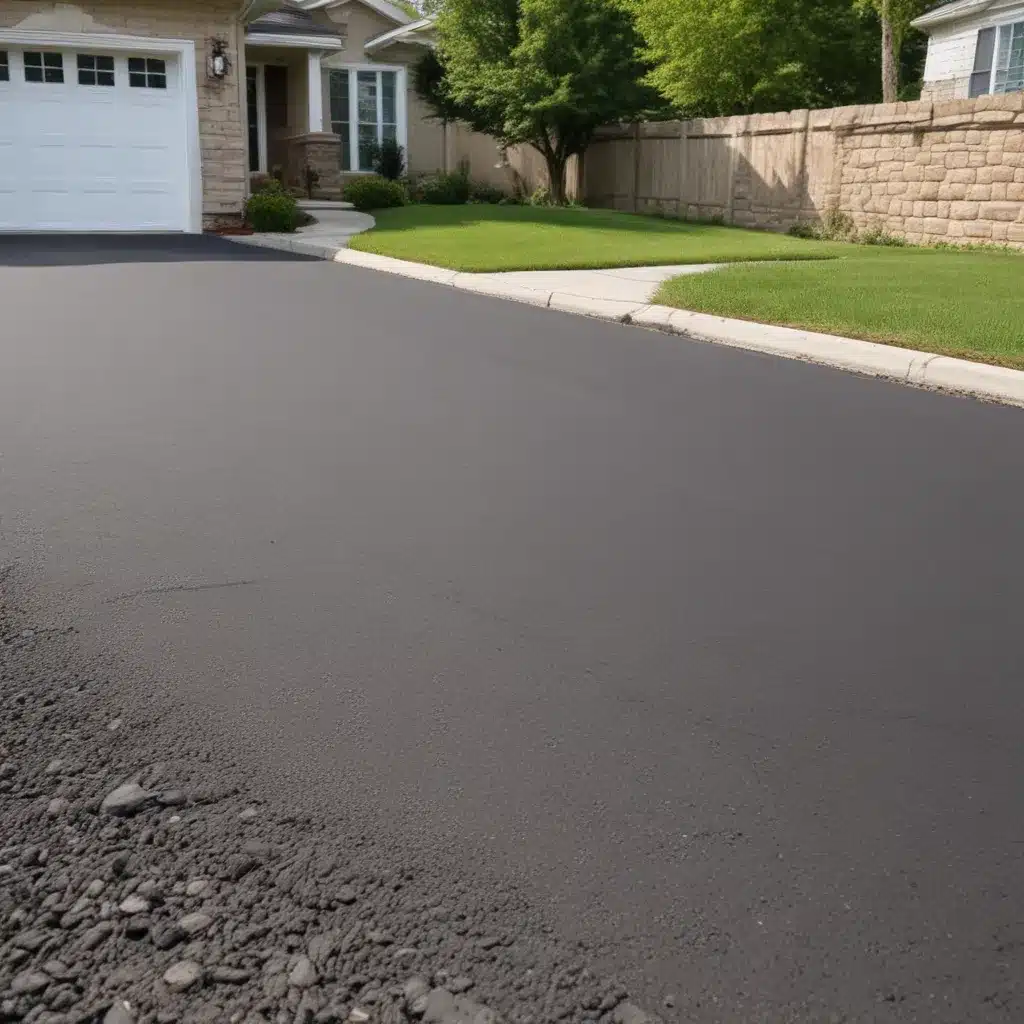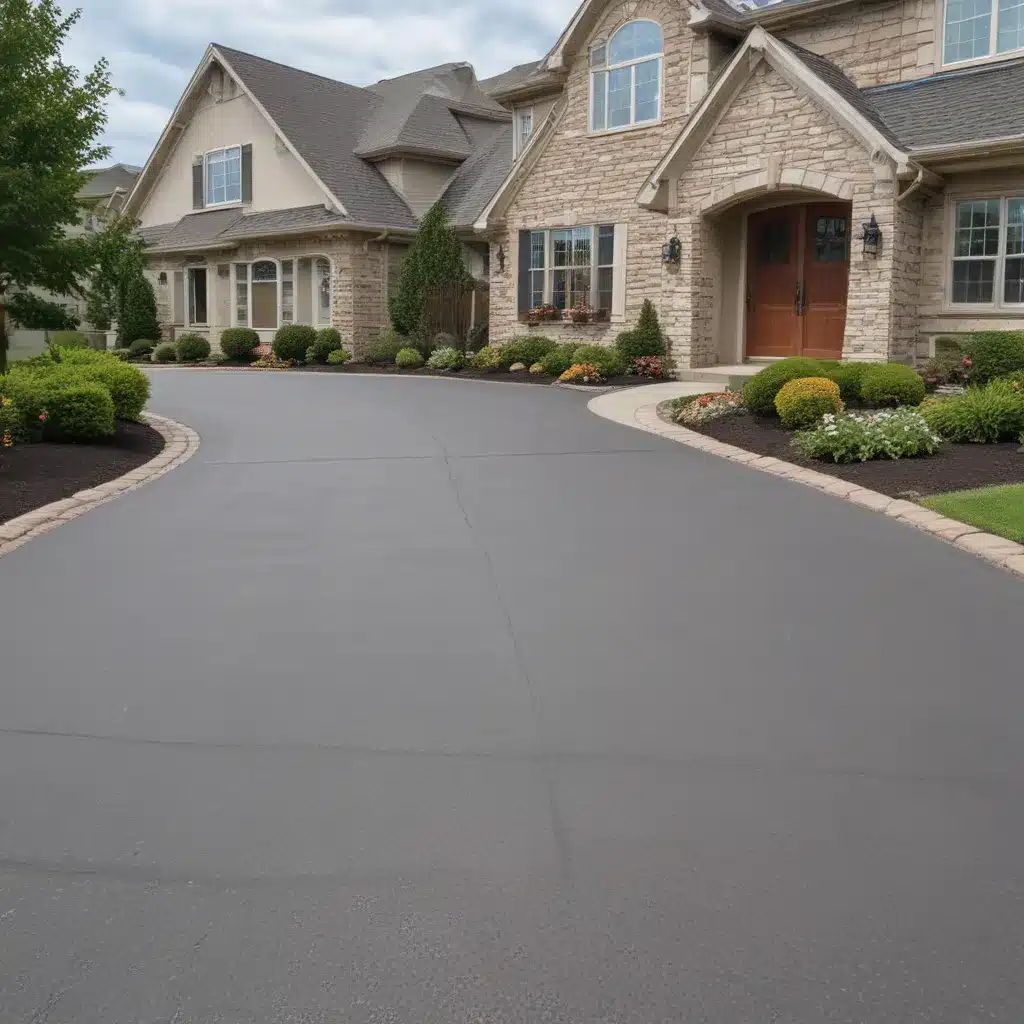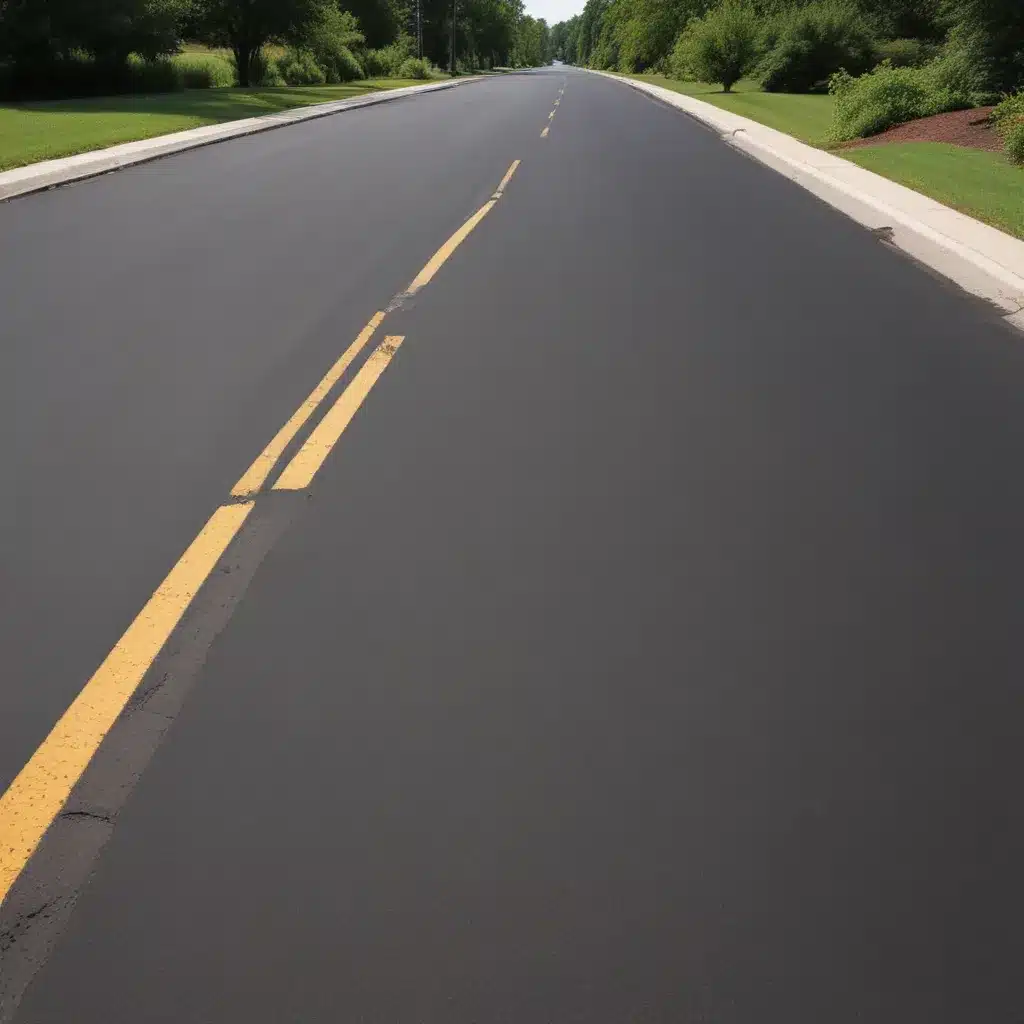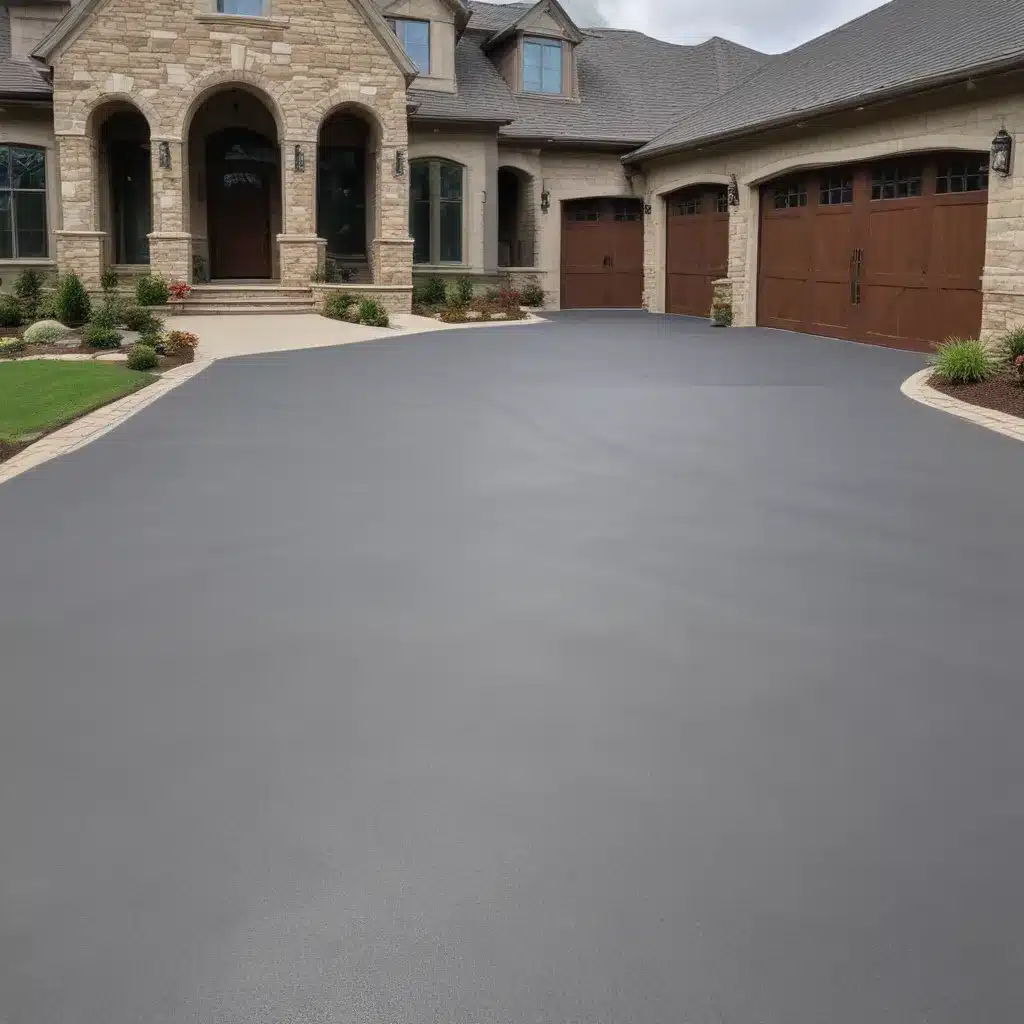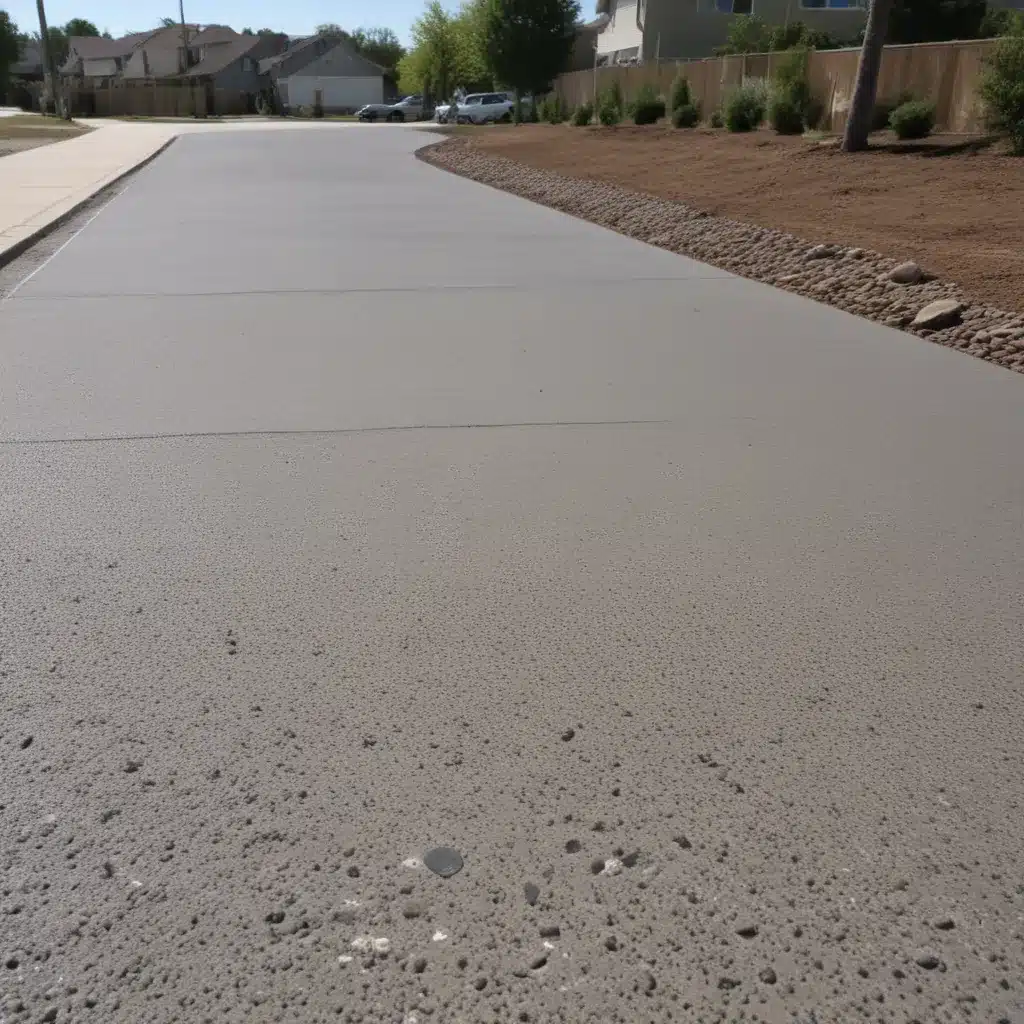The Slippery Slope of Asphalt Deterioration
Have you ever found yourself staring at your driveway, watching with dismay as the once smooth surface slowly transforms into a veritable obstacle course of cracks and potholes? If so, you’re not alone. Asphalt driveways, while durable and long-lasting, are not immune to the ravages of time and the elements. In this comprehensive guide, I’ll delve into the common culprits behind asphalt driveway damage and equip you with the knowledge to keep your entryway looking its best.
Weathering the Storm: How Climate Affects Asphalt
Mother Nature can be a fickle friend when it comes to your driveway. The constant fluctuations in temperature, from scorching summer days to frigid winter nights, can wreak havoc on the integrity of your asphalt. As the asphalt expands and contracts with the changing weather, it becomes increasingly susceptible to cracking and splitting.
But it’s not just the temperature that’s the problem. Precipitation, in the form of rain, snow, and even standing water, can also contribute to the demise of your driveway. When water seeps into cracks and crevices, it can cause the asphalt to deteriorate, leading to potholes and unsightly damage.
The Toll of Heavy Usage
Your driveway is the unsung hero of your home, bearing the brunt of countless car journeys, heavy machinery, and even the occasional impromptu game of street hockey. This constant wear and tear can take a toll on the structural integrity of your asphalt, leading to cracking, crumbling, and the dreaded potholes.
And let’s not forget about the impact of heavy vehicles. The sheer weight of large trucks, buses, or even your beloved RV can put immense pressure on the asphalt, causing it to crack and deform over time. It’s like asking a superhero to hold up a skyscraper – eventually, even the mightiest of asphalt surfaces will succumb to the strain.
Subterranean Sabotage: The Role of Soil Conditions
Believe it or not, the very ground beneath your driveway can be a contributing factor to its demise. If the soil is unstable or prone to shifting, it can cause the asphalt to crack and settle, creating unsightly and potentially dangerous uneven surfaces.
And let’s not forget about the pesky tree roots that can wreak havoc on your driveway. As these underground tendrils grow and expand, they can push up against the asphalt, causing it to buckle and crack. It’s like a game of asphalt Jenga, and the roots always seem to hold the winning hand.
Inferior Installation: When Craftsmanship Counts
While asphalt is a resilient material, it’s not invincible. If your driveway was installed improperly, with substandard materials or shoddy workmanship, it’s only a matter of time before the cracks start to appear.
Imagine building a house of cards, but instead of delicate paper, you’re using weak, crumbling bricks. It’s a recipe for disaster, and your driveway is no exception. Poorly laid foundations, insufficient drainage, or even the use of low-quality asphalt can all contribute to the premature deterioration of your entryway.
Keeping Your Driveway in Tip-Top Shape
Now that we’ve explored the myriad of reasons why your asphalt driveway might be prone to damage, the question remains: what can you do to keep it looking its best? The answer lies in a combination of proactive maintenance, timely repairs, and enlisting the help of the experts at NW Driveways.
From regular sealcoating to addressing cracks and potholes as soon as they appear, there are numerous steps you can take to extend the life of your driveway. And when the time comes for a more comprehensive overhaul, trust the professionals at NW Driveways to provide the expertise and attention to detail your driveway deserves.
So, don’t let your driveway become a battleground of cracks and crumbling asphalt. Arm yourself with the knowledge and the right team to keep your entryway looking its best, and enjoy the smooth, seamless journey to and from your home for years to come.

